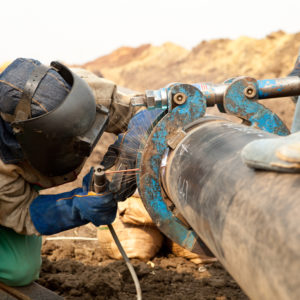President Joe Biden’s “Build Back Better” campaign could be off to a rocky start, especially if you’re one of the builders. One of the potential first acts of a Biden administration is to cancel the presidential permit for the Keystone XL pipeline. The $8 billion project would deliver up to 830,000 barrels of oil per day from Alberta, Canada to refiners in the Gulf Coast.
If true, the decision to revoke the Keystone XL permit will be a poor economic and environmental decision. The climate impact of the pipeline will be practically undetectable, as confirmed by the Obama administration’s Environmental Protection Agency and State Department’s environmental impact assessment. The review also satisfactorily addressed risk to a host of other concerns including potential impacts on soil, wetlands, water resources, vegetation and endangered species.
In fact, the decision could likely backfire environmentally. Blocking Keystone XL isn’t going to stop the production of Canadian oil or prevent oil from reaching refiners in Texas and Louisiana.
Instead, prohibiting the pipeline will create more inefficient and riskier methods of transporting crude, whether that is more tankers from overseas or carrying Canadian crude by truck or rail.
Before the pandemic hit, Canadian crude-by-rail exports reached record highs. Moreover, despite slumping demand and low oil prices, a recent report from Canada’s Energy Regulator projects a steady increase for oil production through 2039.
It is also worth noting that the Gulf Coast refineries were built largely to handle medium and heavy crudes, such as those coming from Alberta. Sending the oil elsewhere could generate additional inefficiencies in oil markets.
At a time when economic growth and job creation are desperately needed, is the administration going to dismiss so many thousands of well-paying, shovel-ready construction jobs?
The southern portion of the pipeline, which did not require President Obama’s approval, created nearly 5,000 jobs. Further, the decision to block Keystone XL would put the new administration in an early bind with unions. Last August, TC Energy, the project’s developer, announced a Project Labor Agreement with four major American unions to build Keystone XL.
Indigenous Canadian groups, who have invested nearly $764 million in the pipeline, could also stand to significantly lose out. Further, Keystone XL has enjoyed bipartisan support, including a vote to advance the project in 2015 with nine Democratic Senators voting in favor and some of President Obama’s Cabinet members expressing support for the project.
The inability to move forward with Keystone XL is symbolic of a broader problem with energy projects and infrastructure, generally: the unnecessary delays to build just about anything. Prolonged permitting processes, seemingly endless litigation, and arbitrary political decisions dictate who builds what. Or more accurately, who doesn’t get to invest, create jobs, and build.
While oil and natural gas pipelines have the biggest targets on their backs, the problem extends well-beyond conventional energy infrastructure. Environmental organizations have fought against solar development, offshore wind, nuclear power and new transmission lines to deliver Canadian hydropower to the northeast. New infrastructure wouldn’t just create jobs and provide affordable, reliable power to families and businesses — it could also yield substantial efficiency improvements and emissions reductions.
Conversely, analysis paralysis and overzealous lawyers stunt economic and environmental progress. Congress and the Biden administration should instill a regulatory process that protects public health and safety, respects private property rights, and objectively and transparently assesses the environmental risk of a project.
When TC Energy (then TransCanada) announced its intention to build Keystone XL and filed for a permit, the first Iron Man movie had just come out. If you had a child that year, you’d be quickly on your way to raising a teenager. It should not take 13 years to permit a pipeline. That does not provide confidence or certainty that America is open for investment.
President Biden is rightly focused on stemming the spread of COVID-19 and rebuilding the American economy. To do that, however, businesses need to actually be able to build.

